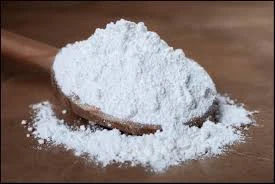
food additives to increase shelf life
Food Additives to Increase Shelf Life Preserving Quality and Safety
In an age where food spoilage poses a significant challenge to both consumers and producers, the utilization of food additives has emerged as a crucial strategy for extending the shelf life of various products. These additives are substances added to food to enhance its preservation, safety, and quality. As the demand for longer-lasting and safer food products continues to rise, understanding the role of food additives in shelf life extension becomes increasingly important.
The Importance of Shelf Life Extension
Shelf life refers to the length of time that food products remain safe and retain their desired sensory, chemical, physical, and microbiological properties when stored under specified conditions. Factors like temperature, humidity, and light exposure significantly influence this duration. Foods with extended shelf life can lead to less waste, meet consumer demand for convenience, and enhance overall food security.
With the global population growing and resources becoming scarcer, extending the shelf life of food is not merely a matter of convenience but also a necessity. Food additives can play a vital role in this process, preventing spoilage and maintaining the quality of food for a longer period.
Types of Food Additives for Shelf Life Extension
1. Preservatives Preservatives are chemical substances that inhibit the growth of bacteria, molds, and yeasts, thereby prolonging the shelf life of food. Common preservatives include sodium benzoate, potassium sorbate, and calcium propionate. These compounds are widely used in products such as canned foods, fruit juices, and baked goods.
2. Antioxidants Food products are susceptible to oxidation, which can lead to the degradation of flavor, color, and nutritional value. Antioxidants, such as ascorbic acid (Vitamin C) and tocopherols (Vitamin E), help prevent oxidation and therefore, prolong freshness. They are commonly added to oils, fats, and processed foods to maintain quality.
3. Acidulants Acidulants such as citric acid and acetic acid lower the pH of food, creating an environment less conducive to microbial growth. These additives are often found in pickled products, salads, and soft drinks. By lowering the pH, they not only preserve food but also enhance flavor.
food additives to increase shelf life

4. Emulsifiers Emulsifiers help maintain the texture and stability of food products by preventing the separation of ingredients, which can lead to spoilage. For example, mono- and diglycerides are commonly used in salad dressings and baked goods, which helps improve consistency and extend shelf life.
5. Coloring Agents While primarily used for aesthetic purposes, certain coloring agents also play a role in shelf life. They can help mask undesired color changes due to oxidation or spoilage. For example, adding a natural coloring agent can maintain the visual appeal of a product, encouraging consumption.
Consumer Safety and Regulatory Considerations
While the benefits of food additives are evident, safety remains a critical concern. Regulatory bodies, such as the Food and Drug Administration (FDA) and the European Food Safety Authority (EFSA), ensure that food additives are thoroughly tested for safety before being approved for public use. Consumers today are also increasingly aware of what goes into their food, leading to a demand for transparency and clean labels.
Natural Alternatives and Trends
In recent years, there has been a growing trend towards natural additives as consumers seek healthier options. Ingredients like rosemary extract, green tea extract, and certain essential oils have gained popularity as natural preservatives. These alternatives not only extend shelf life but also appeal to health-conscious consumers.
Furthermore, innovations in food technology, such as modified atmosphere packaging and antimicrobial packaging materials, complement traditional preservatives and offer new ways to enhance shelf life.
Conclusion
Food additives play an indispensable role in increasing the shelf life of various food products, enhancing food safety, and minimizing waste. As consumers become more informed and concerned about their food choices, the food industry must continue to adapt by balancing the use of traditional additives and exploring natural alternatives. Ultimately, the goal is to provide safe, high-quality food that meets the demands of a modern, fast-paced society while reducing the environmental impact of food waste.
-
Buy High-Quality Trichloroisocyanuric Acid for Sale | TCCA 90% SupplierNewsAug.30,2025
-
Pure Sodium Dichloroisocyanurate Dihydrate | Powerful DisinfectantNewsAug.29,2025
-
Industrial Chemicals: Quality & Purity for Every IndustryNewsAug.28,2025
-
Nitrile Rubber Honoring Strict Production StandardsNewsAug.22,2025
-
Aspartame Ingredients Honoring Food Safety ValuesNewsAug.22,2025
-
Fertilizer for Balanced Plant NutritionNewsAug.22,2025
-
Cyanide Gold Processing with High Purity AdditivesNewsAug.22,2025
Hebei Tenger Chemical Technology Co., Ltd. focuses on the chemical industry and is committed to the export service of chemical raw materials.
-

view more DiethanolisopropanolamineIn the ever-growing field of chemical solutions, diethanolisopropanolamine (DEIPA) stands out as a versatile and important compound. Due to its unique chemical structure and properties, DEIPA is of interest to various industries including construction, personal care, and agriculture. -

view more TriisopropanolamineTriisopropanolamine (TIPA) alkanol amine substance, is a kind of alcohol amine compound with amino and alcohol hydroxyl, and because of its molecules contains both amino and hydroxyl. -

view more Tetramethyl Thiuram DisulfideTetramethyl thiuram disulfide, also known as TMTD, is a white to light-yellow powder with a distinct sulfur-like odor. It is soluble in organic solvents such as benzene, acetone, and ethyl acetate, making it highly versatile for use in different formulations. TMTD is known for its excellent vulcanization acceleration properties, which makes it a key ingredient in the production of rubber products. Additionally, it acts as an effective fungicide and bactericide, making it valuable in agricultural applications. Its high purity and stability ensure consistent performance, making it a preferred choice for manufacturers across various industries.





